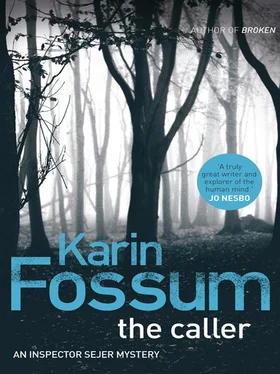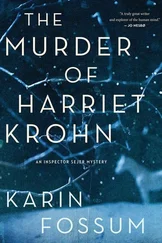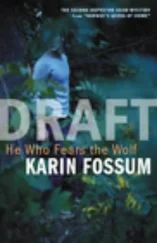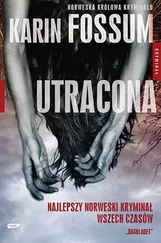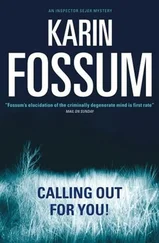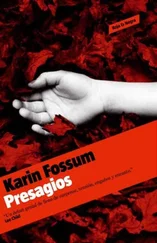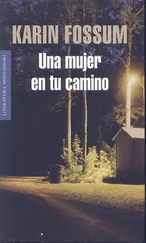‘I don’t like him,’ Nihmet said. ‘He drives like a maniac in his Land Cruiser. He’s a crude person, Sverre. And he has a wild look in his eyes. Haven’t you noticed?’
Frances and Evelyn Mold still carried a grudge against the person who had put them through hell. But even they had their doubts about the dog kennel. That someone would go up there to open the gate — no, that didn’t sound right.
Astrid Landmark no longer had anyone to discuss the matter with: her husband had been disconnected from the respirator. And he had been driven in style in the Daimler from Memento, surrounded by leather and mahogany and walnut, to his final resting place.
Little red-haired Else Meiner, she had her own ideas on the subject.
‘Didn’t I tell you?’ her father roared. ‘Didn’t I say one day he would go too far? Now everyone’s feeling the pain. He’ll lug this around for the rest of his life. A little boy. I’m speechless. Do you know what he’ll do now, Else? He’ll hunker down, and he’ll never be caught.’
Else didn’t respond. She sat in her room, at her desk, and painted her toenails. Now and then she glanced out of the window to look for the red moped which zipped so frequently down Rolandsgata, to Henry Beskow’s house.
But a few people did believe Bjørn Schillinger’s version. There was enough riff-raff in Bjerkås — everyone knew that by now — and not everyone was happy about the brutes that howled so wretchedly in the evening. With the big beasts on the loose, they could get rid of both the dogs and their owner once and for all. One of those who believed Schillinger’s story was Karsten Sundelin.
One day the two fell into conversation.
They ran into each other at a petrol station down by Bjerkås, a chance meeting, and instantly found common ground: they were bitter men craving revenge.
‘I can’t believe that son of a bitch is playing with people’s lives like that,’ Schillinger said. ‘Kept it up so long and no one can manage to catch him. I’m going to lose everything.’
‘My wife’s moved out,’ Sundelin said. ‘She’s taken Margrete and gone to live with her parents. I feel completely exhausted. Our lives have fallen apart, and there’s nothing I can do about it. What about you? Do you have a good lawyer?’
Schillinger filled the tank, banged the nozzle back on the pump and screwed the cap back on.
‘Yes, I’ve got a lawyer. But when it comes to justice, I don’t have much faith in the authorities. They have too many rules to follow, and there’s so much red tape.’
There was a pause. In the silence they found an understanding, as if they had gathered around something that couldn’t be named. But each knew what this mutual understanding meant.
‘Let’s grab a beer sometime,’ Schillinger said.
‘Yes,’ Sundelin said.
In the days and weeks that followed they were regularly seen together, conversing intensely in a nook at the local bar.
Deep, muzzled voices.
Huddled together.
The false announcements and devilish telephone calls ceased.
Some said it was an admission of guilt — that the unknown tormentor had pulled back in horror and shame. Others said he had grown tired of his macabre game, and didn’t care one way or another what had happened to little Theo Bosch.
How were they going to catch him now? He had terrorised people at a distance and had left no traces, no fingerprints, no clues. Just fear and shock.
One day, in the middle of September, Sejer and Skarre drove out to Bjørnstad after getting a call about a suspicious death.
A patrol car was already there. It was parked, its doors open, along the fence near the last house on Rolandsgata. A couple of crime scene officers were investigating the perimeter of the house.
‘It’s not pretty,’ one said. ‘At first we thought someone had attacked him with a bat. But everything in the house is in order. There are no signs of vandalism or theft.’
Sejer and Skarre went in. They noted the name under the doorbell: Henry Beskow. Sejer glanced towards Meiner’s place down the street. The house was here first , Meiner had said, so he’s got every right to it .
They passed through the small hallway and into the kitchen. There, a small dark-skinned woman sat. She had wrapped herself in a shawl, and though it was far from cold in Henry Beskow’s house, she looked as though she was freezing. The heat was the oppressive kind you often encounter in old people’s homes. The woman introduced herself as Mai Sinok. With a quivering hand she pointed at the lounge where the old man sat in his chair with one foot on the footstool. The other foot rested on the floor, while his torso was slumped over the armrest. Possibly, they thought, he’d attempted to stand, or escape, but he hadn’t had the strength. There was blood around his mouth and chest, and some had dripped on to the floor. He wore an old green knitted cardigan. His trousers, which were much too large for him — presumably because he’d lost weight — were held up by a narrow belt into which someone had punched an extra hole. One of the crime scene officers had brought a box of latex gloves. Sejer pulled one out and slipped it on, leaned over the old man and opened his mouth carefully with two fingers.
He had a full set of teeth.
‘I think he threw up,’ Sejer said.
‘What was that?’ Skarre said.
‘I think he threw up blood.’
Mai Sinok moved closer. She stopped a few steps away. She looked at Henry Beskow, her face filled with fright.
‘He started bleeding from his nose a few days ago,’ she explained. ‘He wouldn’t go to a doctor for it. For a nosebleed. He wouldn’t go to a doctor for anything, Henry wouldn’t. He was stubborn as a mule. He claimed that it was just nature running its course. Then he began to bleed in his gums too, which was a little alarming. May I go now?’ She came forward and put a hand on Sejer’s arm. ‘Please, may I go? I’ve been here for a long time, and I don’t feel well. I would like to go home and lie down for a while.’
Sejer went to the kitchen. He found a glass in the cupboard, poured cold water from the tap and gave her the glass. She clutched it with both hands, drank, spilling like a child.
‘Who comes to this house?’ Sejer asked. ‘Apart from you?’
‘Almost no one. Just his grandson, and he comes often.’
‘I see. We have to let him know. Where does he live?’ Sejer wanted to know.
‘In Askeland. He lives with his mother.’
‘How long have you been helping Mr Beskow?’
‘A year,’ she said. ‘I come every day. He’s a fine old man.’ She drank the cold water. ‘All the care Henry got, he got from that boy. They are best of chumps.’
‘You mean best of chums,’ Sejer corrected her.
Mai Sinok smiled, but immediately became sad again. ‘May I go now?’ she pleaded. ‘I feel very weak.’
‘You may go,’ Sejer said. ‘But we will need to speak to you again. I’m sure you understand. One of our officers can drive you home.’
She rejected the offer. She wanted to take the bus as she always did. It stopped at the bottom of Rolandsgata, and it came regularly.
Sejer walked around Beskow’s small living room.
‘Can you imagine?’ Mai Sinok said. ‘Suddenly he bleeds everywhere. Something inside him must’ve broken.’
Sejer examined some photographs hanging on the wall, of a little boy. ‘Is that his grandson? The little boy on the tricycle?’
‘Yes, it’s the boy. He’s so blond there. His hair is completely dark now.’
‘And also the one with the backpack over here?’
‘Yes, and there he is on the moped. With his gloves and helmet and gear. He got the moped from Henry. Henry’s very generous.’
Читать дальше
